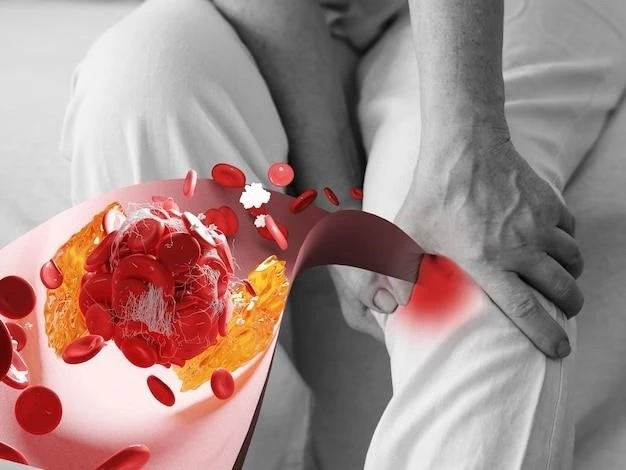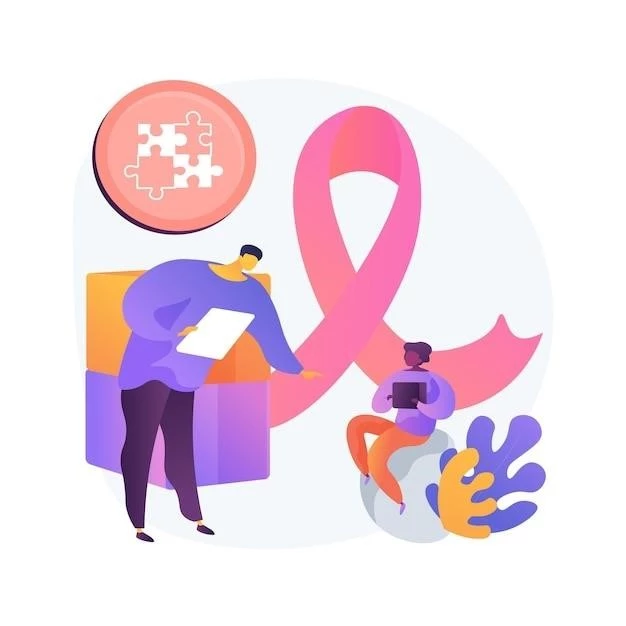Seek medical advice if you experience fatigue, fever, bone pain, swollen lymph nodes, or frequent infections.
Common Symptoms
Common symptoms of acute monocytic leukemia may include fatigue, weakness, pale skin, frequent infections, fever, bone pain, swollen lymph nodes, and easy bruising or bleeding. These symptoms can significantly impact your daily life and should not be ignored. It is crucial to consult with your healthcare provider if you experience any of these symptoms, as early detection and diagnosis can improve treatment outcomes and quality of life.
Less Common Symptoms
Less common symptoms of acute monocytic leukemia may include unexplained weight loss, night sweats, frequent infections that do not resolve easily, shortness of breath, easy bruising or bleeding, and petechiae (tiny red spots) on the skin. While these symptoms may not be as prevalent, they should still be taken seriously. If you experience any of these less common symptoms or have concerns about your health, it is essential to seek medical advice promptly for proper evaluation and management.
Discuss chemotherapy options with your medical team to target and destroy leukemia cells effectively.
Chemotherapy
Chemotherapy is a standard treatment for acute monocytic leukemia that involves the use of powerful drugs to kill cancerous cells throughout the body. These medications are administered orally, intravenously, or via injection. While chemotherapy can be effective, it may also cause side effects such as hair loss, nausea, and increased susceptibility to infections. Your healthcare team will monitor your progress closely and provide supportive care to manage any adverse reactions. It is essential to communicate any concerns or symptoms you experience during treatment to ensure the best possible outcome.
Targeted Therapy
Targeted therapy is a treatment option for acute monocytic leukemia that focuses on specific abnormalities present in cancer cells. By targeting these unique characteristics, targeted therapy can help disrupt the growth and spread of leukemia cells while minimizing damage to healthy cells. This treatment approach may involve medications that block the signals cancer cells need to grow or stimulate the immune system to attack cancer cells. Targeted therapies are often used in combination with other treatments and may have different side effects than traditional chemotherapy. It is important to work closely with your healthcare team to understand the benefits and potential risks of targeted therapy in your leukemia treatment plan.
Stem Cell Transplant
Stem cell transplant, also known as a bone marrow transplant, is a procedure that may be recommended for some individuals with acute monocytic leukemia. During this treatment, damaged or diseased bone marrow is replaced with healthy stem cells to promote the production of normal blood cells. Stem cell transplants can offer the potential for long-term remission or cure in certain cases. However, this procedure comes with risks such as infections, graft-versus-host disease, and organ damage. It is essential to discuss the benefits, risks, and eligibility criteria for stem cell transplant with your healthcare team to determine if this treatment option is suitable for your leukemia management plan.
Understand factors like genetic mutations and exposure to certain chemicals that may contribute to this type of leukemia.
Causes
Acute monocytic leukemia can be caused by genetic mutations that trigger abnormal growth of blood cells. Exposure to certain chemicals like benzene and chemotherapy drugs may also play a role. It’s essential to discuss any potential risk factors with your healthcare provider and take preventive measures where possible. Understanding the causes of this condition can help in early detection and personalized management strategies tailored to your specific situation.

Risk Factors
Several risk factors can contribute to the development of acute monocytic leukemia, including exposure to radiation, certain chemotherapy drugs, genetic disorders like Down syndrome, and a history of blood disorders. Additionally, a weakened immune system or a family history of leukemia may increase the risk. Understanding these risk factors can help individuals make informed decisions about lifestyle changes and preventive measures. It’s important to discuss your specific risk profile with your healthcare team for personalized guidance on reducing the likelihood of developing this type of leukemia.
Learn how age, overall health, response to treatment, and genetics can influence the outlook for this leukemia type.
Factors Affecting Prognosis
Several factors can impact the prognosis of acute monocytic leukemia. Age plays a significant role, with younger patients generally having a better outlook. Overall health and how well your body responds to treatment are crucial determinants. Genetic factors can also influence the disease course and response to therapies. It’s essential to closely follow your treatment plan, attend regular check-ups, and communicate openly with your healthcare team. By staying informed and proactive, you can optimize your prognosis and work towards the best possible outcomes in managing acute monocytic leukemia.
Survival Rates
The survival rates for acute monocytic leukemia can vary based on individual factors such as age, overall health, response to treatment, and genetic characteristics. Generally, advancements in treatment have improved survival rates in recent years. It is crucial to discuss prognosis and survival expectations with your healthcare team. Remember that statistics are estimates, and your personal experience may differ. Maintaining a positive outlook, adhering to your treatment plan, and seeking support can impact your journey with acute monocytic leukemia. Stay informed, proactive, and engaged in your care to optimize your chances of a positive outcome.
Consult with healthcare professionals to undergo blood tests, bone marrow examination, and genetic testing for accurate diagnosis.
Diagnostic Tests
Accurate diagnosis of acute monocytic leukemia involves blood tests to analyze cell counts, bone marrow examination to assess for abnormal cells, and genetic testing to identify specific mutations. Additional tests like imaging studies may help determine the extent of the disease. It is important to collaborate with your medical team to ensure the proper diagnostic workup is conducted. Early and precise diagnosis is crucial for developing a targeted treatment plan tailored to your unique condition. Be proactive in seeking and understanding the results of these tests to facilitate the best possible management of acute monocytic leukemia.
Stages of Acute Monocytic Leukemia
Acute monocytic leukemia is typically categorized into stages based on factors like the number of abnormal cells in the bone marrow, blood cell counts, and symptoms. The stages range from 0 (low-risk) to IV (high-risk). Staging helps determine the severity of the disease and guides treatment decisions. Your healthcare team will conduct various tests to accurately stage the leukemia. Understanding the stage of your condition can provide insight into prognosis and assist in developing a personalized treatment plan. Stay informed and engaged throughout the staging process to make informed decisions about your care.
Adopt a balanced diet rich in fruits, vegetables, whole grains, and lean proteins to support your overall health during treatment.
Dietary Recommendations
For patients with acute monocytic leukemia, it’s essential to focus on a nutrient-rich diet to support overall health and well-being. Incorporate a variety of fruits, vegetables, whole grains, and lean proteins into your meals. Stay hydrated by drinking an adequate amount of water. During treatment, you may experience changes in appetite or taste, so listen to your body and eat small, frequent meals. Avoid processed foods high in sugar, salt, and unhealthy fats. Consult with a registered dietitian for personalized dietary guidance that aligns with your treatment plan. Eating well can help maintain energy levels, support your immune system, and aid in the management of acute monocytic leukemia.
Exercise Guidelines
Engaging in regular physical activity, as permitted by your healthcare team, can have numerous benefits for patients with acute monocytic leukemia. Moderate exercise, such as walking, cycling, or yoga, can help improve energy levels, mood, and overall well-being. It’s important to listen to your body and not overexert yourself. Consider activities that you enjoy and that can be easily incorporated into your routine. Prioritize rest and recovery as needed. Consult with your healthcare provider before starting any exercise program to ensure it is safe and tailored to your individual needs. Stay active to support your physical and emotional health during your leukemia journey.
Stay informed about advances in immunotherapy to explore innovative treatment options for acute monocytic leukemia.
Immunotherapy
Immunotherapy is a promising research area in the treatment of acute monocytic leukemia. This innovative approach harnesses the body’s immune system to target and destroy cancer cells. Immunotherapy drugs work by either enhancing the immune response or helping immune cells identify and attack leukemia cells more effectively. Clinical trials are ongoing to assess the efficacy and safety of immunotherapy in treating acute monocytic leukemia. If you are interested in exploring immunotherapy options, talk to your healthcare team about current research developments and potential eligibility for clinical trials. Stay informed about these advancements to make well-informed decisions about your treatment plan.
Gene Therapy
Gene therapy holds promise as a cutting-edge approach for treating acute monocytic leukemia. By modifying genetic material within the body’s cells, gene therapy aims to target and eliminate cancer cells more specifically. This innovative treatment method may offer personalized solutions tailored to the individual’s genetic profile. Research in gene therapy for leukemia continues to evolve, with ongoing studies exploring its effectiveness and safety. Patients interested in this approach should discuss the current landscape of gene therapy in leukemia treatment with their healthcare team. Stay informed about advancements in gene therapy to make informed decisions about your care and potential treatment options.
Connect with patient support groups for valuable resources, shared experiences, and emotional support during your leukemia journey.
Patient Support Groups
Joining patient support groups can provide valuable emotional support, shared experiences, and practical resources to navigate the challenges of acute monocytic leukemia. Interacting with individuals who understand your journey can offer comfort, insights, and a sense of community. These groups may also provide access to educational materials and updates on the latest research and treatments. Connecting with others facing similar experiences can help you feel less alone and empower you to face your diagnosis with resilience. Explore local or online support groups recommended by your healthcare team to find the right community for you.
Counseling Services
Seeking counseling services can be beneficial for individuals managing acute monocytic leukemia. Counseling provides emotional support, coping strategies, and a safe space to express fears and concerns. A professional counselor or therapist can help you navigate the emotional challenges that may arise during diagnosis, treatment, and recovery. They can also assist in developing healthy coping mechanisms and communication skills for addressing sensitive topics with loved ones. Don’t hesitate to reach out for support. Your mental and emotional well-being are essential aspects of your overall health as you navigate through this journey.
